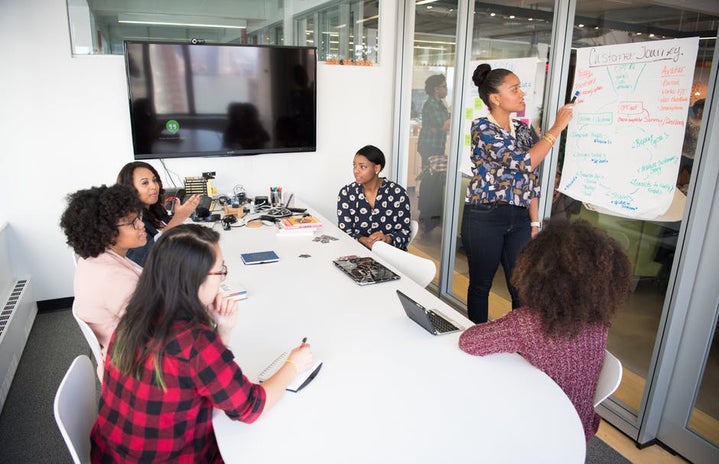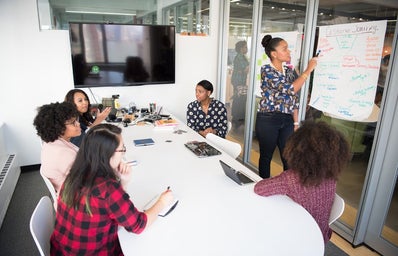This past weekend, I had the chance to attend the second annual Students United Advocacy Conference at Saint Paul College.
While this conference is typically restricted to members of the student government in the Minnesota State University system, I heard about the event from my co-worker and friend, Arnavee Maltare.
One day in the office, while we were talking about student government, Maltare had mentioned a conference she was going to near the end of February. I asked her if it was open to students not involved, but interested in student government, and she said, “most of the people there are in student government, but I don’t think they would kick you out!”
So, the next day I registered for the conference. And while most people at the conference did turn out to be students involved in student government, there were a few outliers, myself being one.
Before leaving for the Twin Cities, I was debating on going to the conference. After a rough week full of articles and assignments, I felt like I needed some self-care. So, I decided to attend only one day of the conference. I would have loved to attend both, but I knew I needed to sleep in, eat some good food and spend some quality time with my family.
Students United offered free hotel accommodation for the first 200 students that signed up, but since I’m from the Twin Cities and had a place to stay, I decided to give that spot to someone who could not attend without transportation and the hotel paid for.
As I arrived at the conference, I saw lots of people from Minnesota State colleges different than my own. While most people would be intimidated by a large group of people they didn’t know, I loved it. As an extrovert, meeting hundreds of new people is one of my favorite things.
The conference began with a catered lunch, then we filtered into the auditorium where they gave us an introduction to the breakout sessions offered throughout the day and the descriptions for each of them.
As I was looking through the list of breakout sessions, they all looked intriguing, but one, in particular, caught my eye. It was titled “Achieving Success and Protecting Your Spirit while Advocating.” As the last presentation of the day, I was looking forward to it throughout the entire conference.
Since I was in middle school, I have been a part of activist groups such as Gay-Stright Alliance (GSA), Students for Democracy, etc. And over time, equality, education and discrimination issues started to take a toll on my positive perspective of the world.
Recently, I had reached a roadblock in my college career. I was falling behind on schoolwork, articles for my job, but the biggest thing I was lacking was self-care.
I believed for a while that getting involved in everything on campus meant you were doing things right. People knew who you were and saw you doing great things, but the most important thing to focus on in your college journey actually isn’t your success or your involvement. Your main focus should be self-growth.
That means taking time to evaluate your life choices, finding your passions and prioritizing what needs to be done to be the best version of you. Straining yourself thin will only lead to more problems.
Once you start stretching yourself thin, things get lost in the chaos. Personally, I had missed out on hanging out with friends and family, going home to see my cats, and taking some very needed me time.
I love face masks, girl’s nights with my roommates and sitting at home in my recliner with a cat on my lap. But I wasn’t doing any of that this year. I was involved in ten different organizations, working 12 hours a week, and taking 18 credits. It wasn’t until I reached a breaking point that I realized something needed to change.
As I walked into the room of the self-care seminar, every seat was filled. I found an extra chair just outside the room and decided to pull up to a table in the back.
The audience and the hosts themselves were shocked to see this many people at the seminar. I guess all of us didn’t realize how crucial the topic of mental health and self-care was for student advocates.
To start their presentation, Michele Knife Sterner, the Associate Director of the Access, Opportunity, and success office at southwest Minnesota state university, had everyone close their eyes and think about a tree. I was a little confused at first, but then she explained that incorporating the five senses helps calm and center your thoughts and emotions.
She then asked everyone to stand up and dance. The students hesitated at first, but Knife-Sterner persisted. So, we got up out of our seats and began to dance. so that’s exactly what we did.
After five minutes of dancing, we got into the tips and tricks that the panel uses to deal with the stress and weight of advocacy work.
While there were many good pieces of advice, one quote from a panelist really stuck with me.
“It’s hard to take care of yourself while taking care of others. But without proper self-care, you won’t deliver the best version of yourself. What’s the point of being an advocate if you aren’t one for your own mental health?”
As a Professor of Human Relations, Cassie Williams said she has seen several students’ burnout from the weight of advocacy and college.
I was one of those students. I was so busy taking care of people and being an advocate for others that I forgot to be my own advocate. Being your own advocate can be as simple as saying “no” to something you really don’t want to do, even though you may be expected to do it anyway.
Looking back on my past and current semester, I realized that I was spreading myself too thin. So thin in fact that the concept of free time was removed from my vocabulary.
I was either writing articles, working on homework, or going to club meetings. I would stay on campus from 8 a.m. to 8 p.m. every day, going home to shower, eat and then finally go to sleep to wake up at 6:30 a.m. the next day.
At this conference, I thought I would learn more effective ways to be an advocate for those that didn’t have a voice. I thought I would make new connections and expand my network….and I did achieve those goals, but I never expected to become an advocate for my own mental health.
Sometimes, the most valuable thing you receive from an event, a relationship or even a quick encounter, is something you would have never expected. But that’s what makes them so important and impactful.



